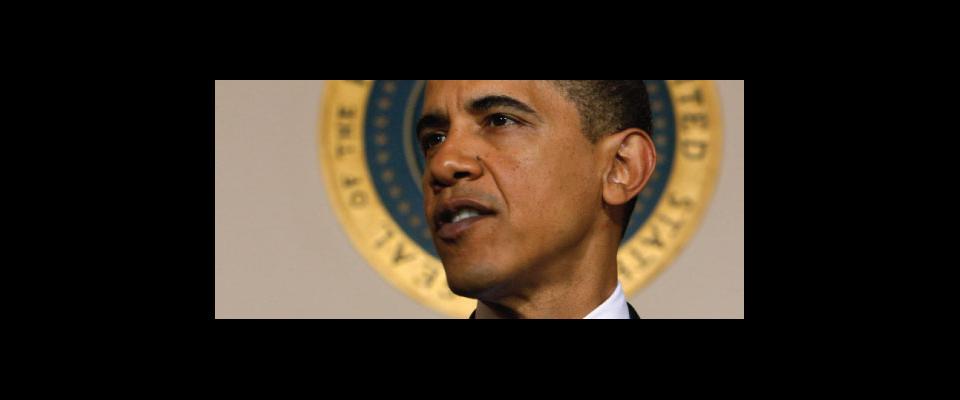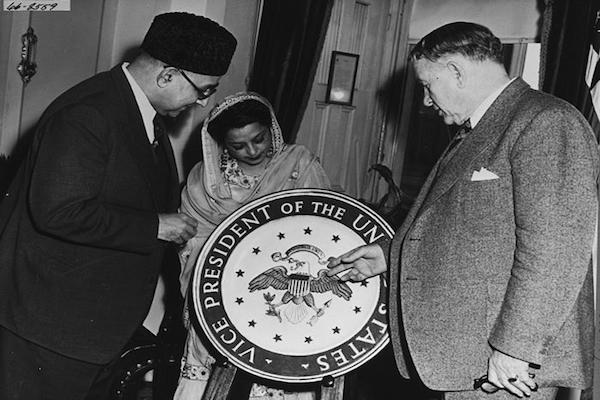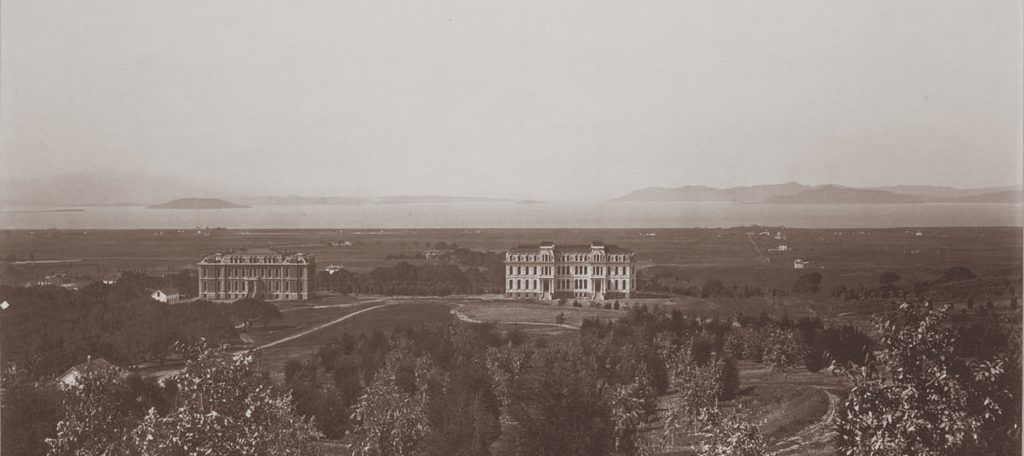New research suggests that power doesn’t always corrupt.
He may be the most powerful man in the world, but Barack Obama seems determined not to act like it. Making his official international debut at the G20 summit in London recently, the new president laid out a striking manifesto of modesty. “We exercise our leadership best when we are listening,” he declared, “when we recognize that the world is a complicated place and that we are going to have to act in partnership with other countries, when we lead by example, when we show some element of humility and recognize that we may not always have the best answer….”
Rhetorically, it was a radical U-turn from the Bush-Cheney administration’s “our way or the highway” approach. So, too, have been President Obama’s bipartisan outreach and his attempt to assemble a “team of rivals” cabinet.
Skeptics warn that Obama’s kinder, gentler face of power is a mere masquerade. After all, his chief of staff and chosen enforcer is Rahm Emanuel, who D.C. insiders used to say was so imperious that a special trauma ward was needed to treat the people who had worked with him. (Among his infamous legacies is a restaurant scene in which, issuing a political vendetta against each enemy he felt had double-crossed his then-boss Bill Clinton, Emanuel repeatedly plunged a steak knife into the table, shouting “Dead! Dead! Dead!”) Nor is Obama himself considered immune to ego, according to one recent Wall Street Journal column, which carried the ominous headline, “The President Is ‘Keeping Score’: Chicago politics has moved into the White House.” The column’s author should know a thing or two about the ruthless machinations of power—his name is Karl Rove.
Clearly Obama espouses a new era in which power is tempered by grace. But achieving that is a much trickier feat, as researchers who examine power dynamics can readily attest. Each news cycle provides validation of what Charles Beard once labeled the first lesson of history: “Whom the gods would destroy, they first make mad with power.”
The questions of who obtains power and why it so often prompts brazen, impulsive, selfish, and reckless behavior are behind dozens of influential studies at Berkeley. What researchers are discovering is that in psychological and even physiological ways, imbibing the elixir of power strips away people’s inhibitions. The effect on their behavior happens at a subconscious level and mimics alcoholic inebriation and even brain damage—which may explain why powerful people so often leave us wondering, “What were they thinking?” We’ve heard of CEOs winging in on private jets to beg for bailouts; Wall Street executives using taxpayer money to award themselves fat bonuses; Eliot Spitzer, as prostitution “Client No. 9,” balking at wearing a condom; presidential candidate John Edwards campaigning with an on-the-payroll mistress and a cancer-stricken wife; actor Christian Bale spewing 43 profanities at a crew member who had the temerity to walk through his line of sight; and uber-demanding bosses such as Oscar-winning producer Scott Rudin reportedly hiring and firing 250 assistants in just five years.
Not that we require famous examples to understand that powerful people can be thoughtless and clueless. The evidence is all around us every day: The teacher who, during a student’s oral presentation, dug wax out of his ear and held it up for scrupulous examination. The professor who, while meeting with graduate students, hoisted his bare feet onto his desk and commenced clipping his toenails. The corporate boss who interrupted an office meeting by peeing into a corner sink in the conference room. Not to mention all the supervisors, spouses, and significant others who declare, in one way or another, “Do it my way or else.”
Since Machiavelli penned The Prince, those seeking power have seen it as a manual of manipulation that teaches it is safer to be feared than loved. Machiavelli’s scheming strategy continues to shape Western thought, spawning contemporary variations such as Robert Greene’s best-seller The 48 Laws of Power. Among those laws: “Crush your enemy totally.” “Get others to do the work for you, but always take the credit.” “Keep your hands clean … by using others as scapegoats.” And “Keep others in suspended terror.”
But if Berkeley’s power-researchers are right, a lot of what we think we learned from Machiavelli and his ilk is wrong. Back stabbers, schemers, rumor mongers, and tyrants may thirst for power, but they often fail to acquire it. Society spots their typically transparent efforts as bad for the community as a whole and swiftly moves to neutralize, ostracize, and sabotage them if at all possible. Research indicates that the type of people who rise to power actually tend not to be the bossiest or the toughest after all.
Unfortunately, they also may not be the most competent.
For example, hanging out in college dorms with pizzas and questionnaires, Berkeley psychology Professor Dacher Keltner, with Cameron Anderson, now an associate professor at the Haas School of Business, documented social hierarchies throughout a year. What they found is that the students who were consistently ranked highest on the power ladder were positive, assertive, sociable—in short, they had finely tuned social radar.
A recently completed series of experiments done by Anderson and doctoral candidate Gavin Kilduff indicate that power flows to self-confident people who speak up—even if they don’t know what they’re talking about. In one case, researchers placed student subjects in teams vying for a $400 math prize. The result: Outgoing, sociable students who called out their answers first became the de facto leaders of their groups and were judged smartest, despite the fact that their answers often were wrong. Even other students who were math whizzes with perfect SAT scores acquiesced and agreed to the wrong answers. It’s not that they were intimidated, according to post-session interviews. They actually fell for it, figuring that their own correct answers must be wrong.
These and dozens of other studies of children, college students, political groups, and even corporate culture indicate that the people likeliest to rise to power are social extroverts—self-confident, warm, playful, empathetic, good listeners. In short, “people” people.
But ultimately most of them run smack into what Keltner has dubbed the “power paradox”: The social skills critical to obtaining power and leading effectively are the very skills that deteriorate with the onset of power. Look no further for a power poster child than Bill Clinton. Yes, his off-the-charts social intelligence propelled him from obscure Hope, Arkansas, to the most powerful job on the planet. But his self-centered lack of impulse control continually put him in danger of losing everything.
So what’s really going on here? Since it isn’t possible to hook ego electrodes and meanness meters up to Donald Trump and measure his every act, a scientific inquiry into power can be difficult. Nonetheless, a cadre of Berkeley psychologists, working with researchers from Stanford, Northwestern, and other universities, have been working to construct a scientific foundation beneath Lord Acton’s famed rebuttal to papal infallibility: “Power corrupts, and absolute power corrupts absolutely.”
Indeed, some of the most celebrated cases in the annals of psychology show power to be acid that corrodes compassion. Every Psych 101 course covers the 1961 Stanley Milgram experiments at Yale, in which nearly two-thirds of subjects, when given the opportunity, administered what they believed to be 450-volt shocks to innocent participants despite their faux shrieks of pain. Equally renowned is Philip Zimbardo’s 1971 Stanford Prison Experiment, in which subjects cast as “guards” abused their positions and even tortured fellow subjects cast as “inmates”—a simulation that eerily foreshadowed the sadistic misdeeds at Abu Ghraib.
Newer research suggests that powerful people tend to behave like patients suffering from damage to the brain’s orbitofrontal lobes, which normally function as internal regulators, holding us back from bold or bad behavior. When people inhale the heady fumes of power, they abandon restraint and stop trying to “control” themselves. Experiments show that even their body language is more expansive—they gesture widely, spread out, sprawl. They become more daring, more outspoken, more obnoxious. They also are more likely to stereotype, to fail to make eye contact when others are speaking, to interrupt and belittle others—and to be genuinely oblivious to how others perceive their conduct. “The experience of power,” Keltner contends, “might be thought of as having someone open up your skull and take out that part of your brain so critical to empathy and socially appropriate behavior.”
In one of the simplest simulations, Keltner and a colleague created teams of three volunteers and had them spend half an hour collaborating on a policy position paper. They randomly assigned one student on each team to evaluate the others, ostensibly to determine whether they had done well enough to merit a cash bonus. Having created this artificial power hierarchy, researchers then carried in trays of five cookies. Not only did the disinhibited leaders consume extra cookies, but they were more likely to chew with open mouths and scatter crumbs.
Another classic experiment illustrates how power alters perspective. Participants wrote essays about an experience in which they felt either powerful or powerless—a technique researchers used to help prime them psychologically into a confident or vulnerable frame of mind. Then the participants were instructed to use a nontoxic marker to draw a capital E on their foreheads.
People in the less secure frame of mind drew the E so that others could easily read it. But people in the more confident group were nearly three times more likely to draw the E so they could easily read it, without considering that onlookers would see it as backward. Lead researcher Adam Galinsky, a Northwestern University social psychologist who’s currently a visiting professor at Berkeley, reasoned that the more people regard themselves as the center of the universe, the harder it is for them to imagine what the world looks like to underlings orbiting around them.
No wonder the rest of the country shakes its head at Wall Street and Washington and surmises, “They just don’t get it.”
Then, of course, there is the recklessness. A series of experiments by Anderson and Galinsky revealed that powerful people tend to be overly confident about their odds of success, while underestimating hazards even about risks over which they have no control. Study participants who felt powerful were more likely to divulge information to a job interviewer, to bet on a low blackjack hand, and to underestimate the risks of natural disasters. They also indicated they were less likely to use a condom. Unlike people who felt little power, these participants were more optimistic about all kinds of things, from believing they would land a great job to being confident they would avoid gum disease.
Power also tends to erode empathy.
To test that theory, Keltner and Gerben van Kleef, a scholar visiting Berkeley from the University of Amsterdam, ran an experiment in which they paired up high-power and low-power strangers. Each was prompted to share for five minutes something personally painful—perhaps the death of a parent, or humiliation in a romantic situation. Researchers monitored the listeners’ physical responses, such as heart rates, and later conducted interviews. Both their physical reactions and their comments afterward indicated that the powerful participants, when listening to the traumas of others, felt less distress and less compassion.
As leaders grow increasingly oblivious to the feelings of others, they regard those around them as in service to their own needs. Case in point: Hotel chain maven Leona Helmsley earned the nickname “Queen of Mean” with her high-handed dismissals of underlings she derided as “the little people.” Once, when a waiter served a guest a teacup with a little liquid sloshing in the saucer, a livid Helmsley smashed the cup to bits and then ordered the waiter to drop to his knees and beg for his job.
Suffice it to say that when she died, her closest companion, to whom she bequeathed a $12 million trust, was her Maltese. (Death threats against the dog resulted in its receiving its own security detail, at a cost of $100,000 a year.)
When people go on a power trip, they typically are sped along their path by fawners and flatterers. Just ask high-octane diplomat Henry Kissinger, who described power as the ultimate aphrodisiac and noted that when he bored people at parties, they blamed themselves.
If power is starting to sound a lot like demonic possession, it’s important to remember that power doesn’t transform everybody into ogres. Psychologist Serena Chen, an associate professor at Berkeley, remembers reading the Milgram and Zimbardo studies and being troubled by the implications. “Researchers like me said, wait a minute, if we were powerful, we don’t believe we would abuse it,” she says. “If anything, we’d feel we would have to behave even more responsibly. And we decided that approach merited further study.”
So Chen and her colleagues sorted subjects by personality, using self-assessment scales to determine whether they were communally oriented (“I look out for others”) or exchange oriented (“When I give someone something, I generally expect something in return”). Then they were placed in simulated situations in which they were given authority—for example, to split a list of tasks between themselves and another participant said to be running late. Just as Chen suspected, the communal people took on a greater share of tasks than did their more self-centered counterparts.
While that might seem to contradict the power studies of her colleagues, both they and Chen insist it does not. They generally accept the theory that loss of inhibition is the root of power. But as power lowered inhibitions, triggering freer self-expression, Chen found that the innately self-centered grew more selfish, while people whose impulses were communal became more generous.
Perhaps it’s true that power doesn’t corrupt so much as it reveals. Abraham Lincoln suggested as much when he observed, “Nearly all men can stand adversity. If you want to test a man’s character, give him power.”
For all the pitfalls of power, it clearly has an upside—a gigantic upside. Powerful people can change the world for good. Uninhibited and willing to take risks, they can innovate, embrace the unpopular, stare down the senseless mob, and shake up the status quo. And they can sometimes accomplish what seems impossible. Without a great sense of personal power, could a freshman senator from Illinois, abandoned by his African father, with the politically cursed name Barack Hussein Obama, have dared to defy conventional wisdom and become the leader of the free world?
The trick, of course, is learning to temper power with grace.
President Obama will be an interesting case study. As a senator he made it a habit to fly in coach, where he said he gained more insight into his constituents. As a presidential contender, he relaxed by shooting hoops with a group of old friends. As president-elect, he vowed that his politically astute wife, Michelle—also known to remind him to make the bed and take out the trash—would keep him grounded. “Every high-flying kite needs somebody with their feet on the ground. And that’s Michelle,” Obama’s consultant and friend Avis LaVelle told the Chicago Sun Times. And the president has cultivated advisors such as financier Warren Buffett, who still plays bridge with old friends and lives in the same Omaha, Nebraska, house he bought for $31,000.
Thus far, researchers such as Keltner and Anderson are relishing the fact that President Obama seems to be putting many of their principles into practice. Ultimately, they would like to see their work help shape a more competent, compassionate, and constructive power model.
“I talk to a lot of leadership groups who actually dig this,” says Keltner, who seems every bit the idealist you might expect from a man who is codirector of Berkeley’s Greater Good Science Center and author of the new book Born to Be Good: The Science of Meaningful Life.
“People are ready for new models. They know we can’t be run by the Machiavellis of the world, because they will run societies right into the ground.”





















